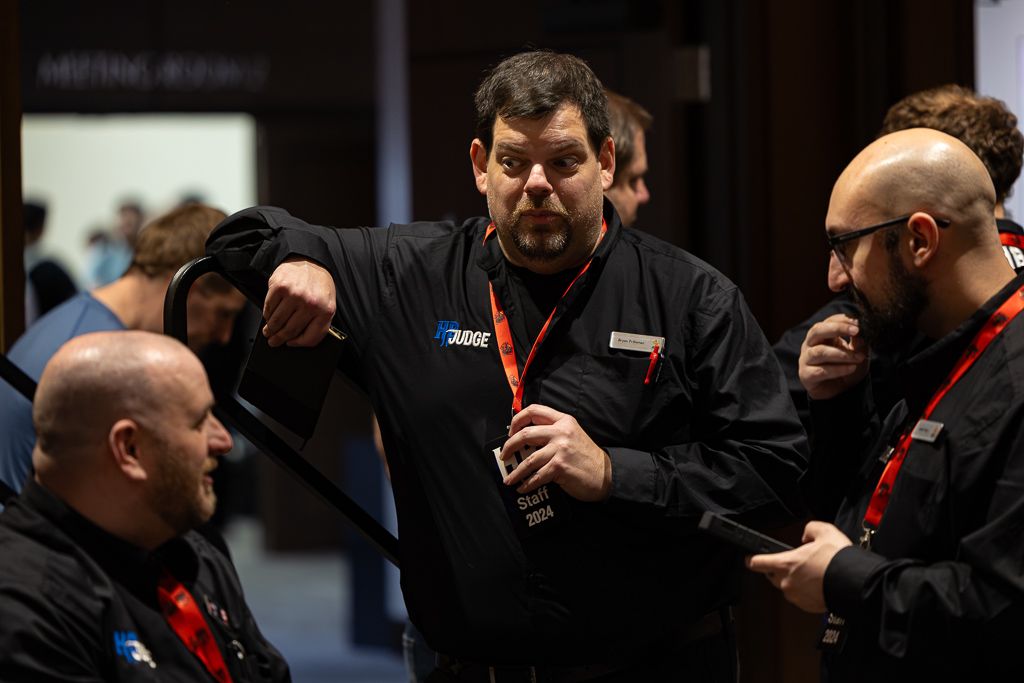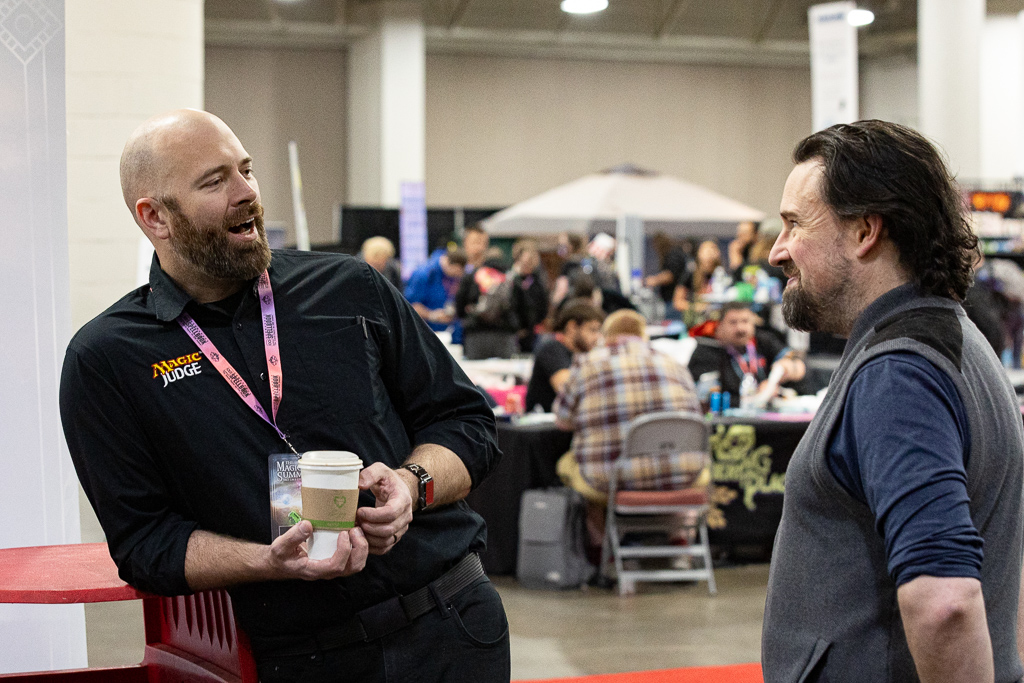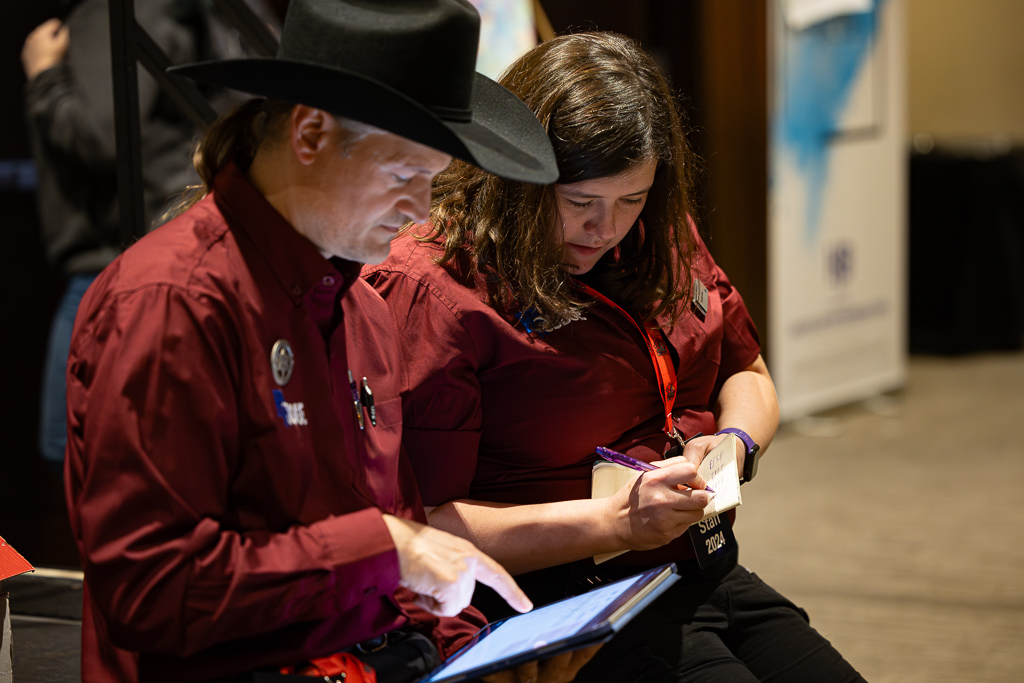As we did in February, we’re making a few small adjustments to our levels. As we said in the last article:
We’re calling this a tune-up, and members should expect these about once a quarter or so, at least for Judge Foundry’s first year, as we see how our theory plays out when put into practice. None of these changes is individually significant enough for its own article, so we’re presenting them all together. In the spirit of transparency, we wanted to share the changes with you and explain our thinking, rather than just quietly updating our official definitions.
Some of these are clarifications of ambiguity, some are new policy, one is fixing a typo. While our previous article focused mostly on L1 and L2, we feel like those levels are in a pretty good place right now and we don’t see anything that needs significant adjustment there. This update is mostly focused on the higher levels instead, because with the end of the Automatic and Expedited promotion process, we’re going to be starting panels for L4 and L5 soon, and wanted to patch things before that starts.
Unless otherwise noted, these changes are effective immediately. The fifth change is deferred, for reasons explained below.

If you have feedback on these changes, or on future changes you’d like to see, there are four ways of providing feedback to the Judge Foundry Board of Directors:
- Send us an email ou fill out the Contact Us form on the website – This is a simple and direct way of sending us a message. We all read every email sent to us, though it may take us time to discuss a response before replying.
- Post on the Feedback forum on JudgeApps – If you’ve got an idea you think would benefit from public discussion, post it here. The JudgeApps forums are a way to get your feedback in front of every member of Judge Foundry, and we value the community’s discussion of feedback when determining our actions.
- Ask a question for our monthly Board meeting – We post a forum on JudgeApps every month for questions, and we answer all questions at each meeting.
- Talk to us at events – All five of us travel the country working tournaments, and these represent a great chance to have a face-to-face discussion. Remember, though, that when we’re on the floor, our first priority has to be the event, so please understand if we suggest having an in-depth conversation after shift, on a break, or online if things are hectic.
As with our earlier articles defining the levels, the bold text is considered Judge Foundry policy, while the italics are our commentary on it.
Melee Competence and L3+ Judges
Added to Events Skills for L3+: “Demonstrated ability to explain simple operations to players using Melee.gg, such as how to submit a result or how to find their table.”
Added to L3 Advancement Requirements, as part of the interview: “Ability to assist players with simple tasks in Melee.gg.”
Melee has become indispensable and ubiquitous in Competitive REL play, and we’ve received feedback that players expect judges to be conversant enough with the software to assist them. We’ll be doing some education on this in the coming weeks, so that all judges who might work Competitive REL events can confidently help players.
Note that while we’re adding this skill expectation at Level Three, we may include questions about Melee tasks on standard update quizzes when there’s been a significant update to Melee. As a result, L2s may be tested on Melee updates as well; we anticipate having no more than one Melee questions appearing on each quiz, and will ensure that when we include Melee questions on the standard quiz, there’s a big enough pool of questions to allow more than one retake.
Level Five Judge Maintenance
Increased number of multi-day events required for maintenance from six to eight.
Someone asked recently why L5 and L4 have the same requirement for this option. Our first response was “They shouldn’t,” but when we looked back at the documents, including the article initially laying out Level Five, it turns out that we copied and pasted this bullet without updating it.
Our intent here was always to make the L5 quantitative activity requirements a little steeper than the requirements for L4. We go from “Lead 20 Judges” to “Lead 30,” from “Head-judge an event with five judges” to twelve, so it makes sense for the requirement on number of multi-day events worked would also go up.
We’re announcing this about ten months before the next maintenance window (ending March 31st, 2025), so we don’t expect that this will cause a significant surprise for any L5s. However, if it does, contact us and we can talk about it.

Writing the Update Quiz takes the Update Quiz
Judges may fulfill the requirement to take update quizzes by participating in the writing of update quiz questions. Judges who contribute at least three questions that are accepted for an update quiz are treated as though they passed an update quiz for that set.
Someone has to write and edit the questions for each update quiz for there to be an update quiz. It’s a little awkward that project members who participate in the creation of update quizzes were nominally expected to also take them, especially since they often see questions and answers during the quiz development process.
While we could create a complicated system by which team members could take a quiz of questions they haven’t seen, it seems more sensible to simply treat work on the update quiz project as continued education that this requirement represents. Members of the update quiz team are exposed to the new mechanics and policy changes as they develop the quiz, plus this provides an acknowledgement of the team members’ work.
If you’re interested in joining the Update Quiz project, email project lead Steven Zwanger.
One Head Judge per Tournament
An event has one Head Judge for the purposes of advancement and maintenance requirements that mention head-judging.
This brings the documents into alignment with the decision the Level Five Judges recently voted on during the Automatic Advancement process. When the levels team was crafting the initial requirements, we accidentally left this vague.
If a TO designates multiple Head Judges, the group of Head Judges should agree on who gets to count that event for any future requirements. We feel this mirrors how, even when there’s a group of judges are acting as Head Judges, a single person typically has final authority on making policy and logistics decisions during an event.
This decision applies to maintenance requirements for similar reasons. If this decision makes maintenance particularly more difficult, we’ll adjust the requirements.
The Advanced Rules and Policy Exam and Expedited Promotion
Starting October 1st, 2024, judges who were promoted to Level Four via the Expedited and Automatic promotion processes must take the Advanced Rules and Policy exam to be promoted to Level Five.
This is more of a clarification than a policy change, since it was previously ambiguous. When we first designed the idea of the AR&P exam, we envisioned a test that every L4 candidate would have to take. After that, if the judge later sought promotion to Level Five, they’d have to pass it again to demonstrate that they’re still keeping sharp on their rules and policy knowledge. The only exception was if that judge had passed all of their update quizzes.
Parallel to this, we designed the Expedited and Automatic promotion process. This process bypassed the exam necessarily, but it meant that the new L4s had never demonstrated proficiency on this exam to carry over should they seek promotion to Level Five. We think it’s important to take this exam to demonstrate rules and policy mastery expected of L5s, so we’re requiring it of judges who didn’t take it to advance to L4.
Unlike our other changes, this change is being deferred by a few months. We want to give ourselves some runway to build out and test this exam thoroughly, but don’t want to bottleneck any candidates who are nearing the runway. We also recognize that this exam will demand extensive studying, and want judges to have plenty of time to prepare for it.

On Our Radar: L4 and 20+ Judge Events
This is not a change being implemented this time (see: no bold text), but the requirement that a judge looking to be promoted to Level Four needs to work a competitive event with 20+ judges on staff is being considered. There are a number of events that meet this requirement right now, including the main event at some SCG Cons, US Regional Championships, Eternal Weekend, the Magic Pro Tour and sometimes the Open at MagicCons, FAB Nationals and the FAB Pro Tour, MTG Summit, and a few others. However, there’s a lot of variance in there, and we also recognize that there are no events in Canada that currently fit this criterion, which creates a problem for judges who can’t work legally in the United States.
We like the requirement – the TLs at 20+ judge events will probably be L4s, and we want you to have worked one before you have to be a TL for it, especially because some teams like product and decklists work vastly differently when you scale up to very large events. However, we don’t want this to be a major roadblock for judges. We’re not making any change right now, because there are two factors we want to watch and evaluate that might push us one way or another.
First, with Expedited Advancement now over, judges are starting to work on their panel checklists. We want to see if this is an actual roadblock (and for how long) or merely a theoretical one. Extending the metaphor, we’re okay if this is a speed bump, we don’t want it to be a dead end.
Second, with StarCityGames taking the wheel on Regional Championships in the United States, we expect staffing to be pretty significant, if the number of stores hosting RCQs is any indicator. This both means more opportunities to work a very large event, and more need for L4s to have experience working very large events.
We’re not promising that this will change, and if it does change, it’ll probably be after we see how the first SCGCon-attached RC goes. But we did want to acknowledge the feedback that judges have provided us at events and through other methods listed above, and note that this is on the radar.
Tune in Next Time
That’s all for this tune-up. We expect to perform one more level tune-up before September’s annual meeting, so look for an update in late summer. In the meantime, if you have feedback on these changes, or others you’d like us to consider for the next tune-up, message us via one of the platforms mentioned above!
